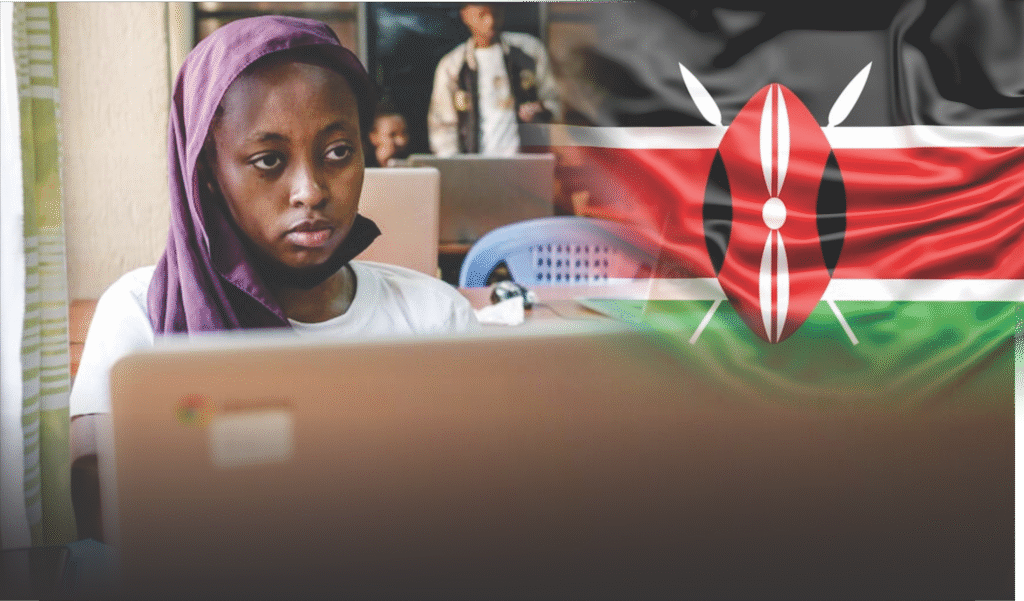Kenya’s Digital Battleground: How Technology is Being Weaponised Against Women and Girls

NAIROBI, Kenya – the promise of digital inclusion for women in Kenya is turning into a perilous double-edged sword. New research reveals how the same online spaces once hailed for empowering women—Facebook, WhatsApp, TikTok, and M-Pesa among them—are now being weaponised to entrap, exploit, and silence them.
A joint study by Equality Now and KICTANet, with survivor narratives gathered by HAART Kenya, Life Bloom Services International, and Trace Kenya, exposes the alarming scale of online sexual exploitation and abuse (OSEA). The reports highlight how predators use technology to groom, blackmail and traffic women and girls, transforming smartphones into instruments of control and trauma.


Technology once symbolised opportunity to many families, a path to education, connection and financial independence. Now, it often brings fear. Mothers warn daughters against strangers online; young women second-guess job offers; and victims carry the weight of shame in silence, fearing community stigma more than the law’s indifference.
One survivor recounts that –“I thought I was going abroad for work. Instead, I was raped and told to stay quiet or be killed.” Such stories echo across rural and urban Kenya, revealing a cycle where digital deception leads to physical violence and justice remains elusive. It’s a wicked bridge of cultural and social crossroads.
Kenya’s patriarchal norms compound the crisis. Victims are often blamed rather than believed, with families urging quiet resolutions to avoid scandal. The emotional toll extends beyond individuals, because children lose mothers, marriages collapse and communities fracture under the weight of secrecy and stigma.
Online spaces have also amplified old cultural wounds. Gender-based abuse has evolved from street harassment to digital surveillance, exposing how society’s biases now travel at the speed of the internet. One researchers said that – “technology has not created misogyny, it has just digitized it.”
![]()
On the path of business and platform accountability: social media companies and digital service providers, many of which profit from Kenya’s booming online economy, face growing scrutiny. Despite having policies against online sexual exploitation, enforcement remains weak. Algorithms that amplify engagement often reward sensational or predatory content.
Mobile money apps, used by millions for everyday transactions, are also being exploited by traffickers to lure victims with false promises of work or quick payments. Yet, as the reports note, these companies face few binding obligations to detect or report abuse. Political and legal implications always play role into these sphere if seriously implored.
Kenya has enacted laws like the Computer Misuse and Cybercrimes (Amendment) Act, 2024, to address digital threats. Still, experts warn that enforcement lags behind technology. Courts remain adversarial, police undertrained, and survivors face systemic disbelief.
Legal reform is under review, including updates to the Sexual Offences Act and Counter-Trafficking in Persons Act, seen as critical opportunities to modernise definitions of exploitation and strengthen survivor protections.
Politically, the issue underscores the tension between rapid digitalisation and slow institutional reform. Kenya’s growing digital economy, central to its Vision 2030 agenda, risks being undermined if women cannot participate safely online. This is a call for a human-centered digital future.

At its heart, the OSEA crisis is not just a legal or technological problem, it’s a human one. Survivors need trauma-informed support, communities need education, and families need protection mechanisms that bridge the digital and physical worlds.
Experts urge Kenya to ratify the Malabo Convention on Cybersecurity and Data Protection to boost cross-border cooperation and evidence-sharing. But stressingly, true progress requires more than treaties. It requires cultural transformation, corporate accountability and political will.
Kenya’s digital revolution has lifted millions into the global economy. The challenge now, is ensuring that women and the girl-child, which symbolically are the backbone of the home front, can navigate that world without fear.






